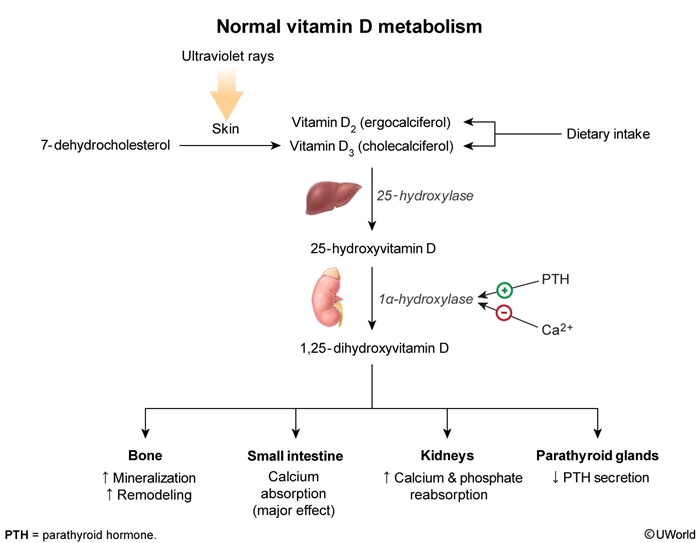Vitamin Deficiencies And Toxicities
Article Sections
Introduction
Humans require 13 essential vitamins, classified as fat-soluble (A, D, E, K) or water-soluble (B complex [B1, B2, B3, B5, B6, B7, B9, B12], C). Deficiencies can occur with any vitamin (eg, nutritional scarcity, malabsorption). However, clinically significant toxicities are only seen with fat-soluble vitamins (especially A and D) because they accumulate in tissues and exert dose-dependent effects through nuclear transcription factors. Water-soluble vitamins rarely cause toxicity because they are readily excreted in the urine.
General principles
In resource-rich regions, dietary deficiency is rare due to fortification of staple foods like grains and cereal. In the resource-limited regions, several vitamin deficiencies (especially A, D, and B12
Continue Learning with UWorld
Get the full Vitamin Deficiencies And Toxicities article plus rich visuals, real-world cases, and in-depth insights from medical experts, all available through the UWorld Medical Library.
Unlock Full AccessImages
